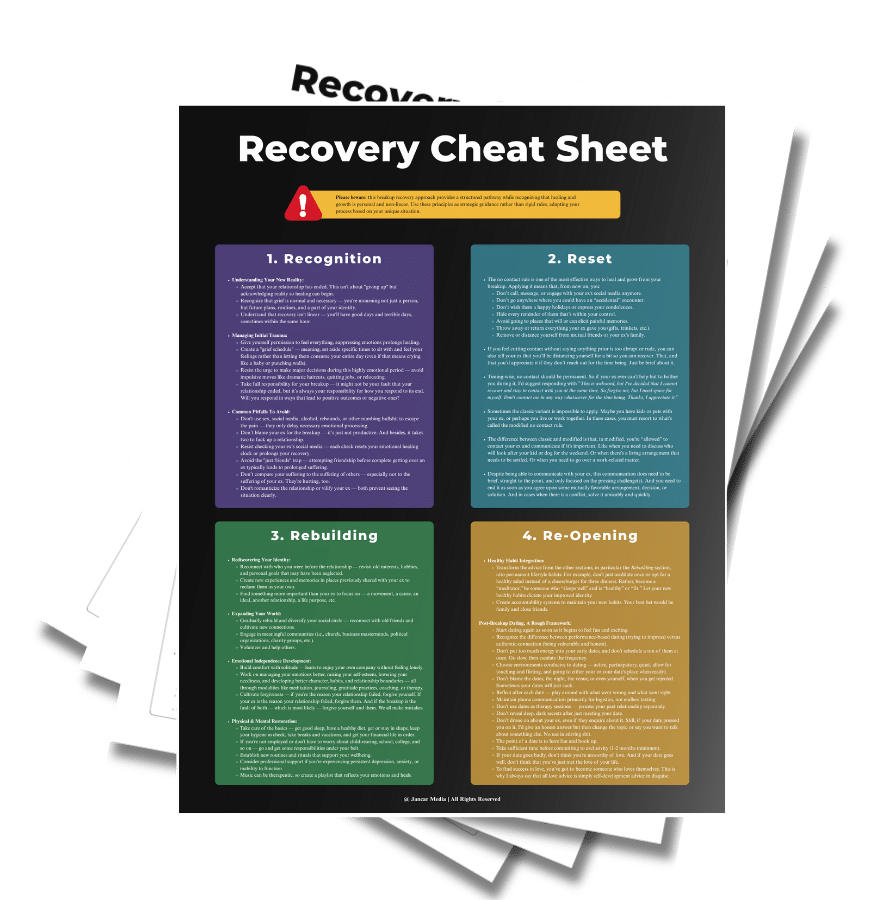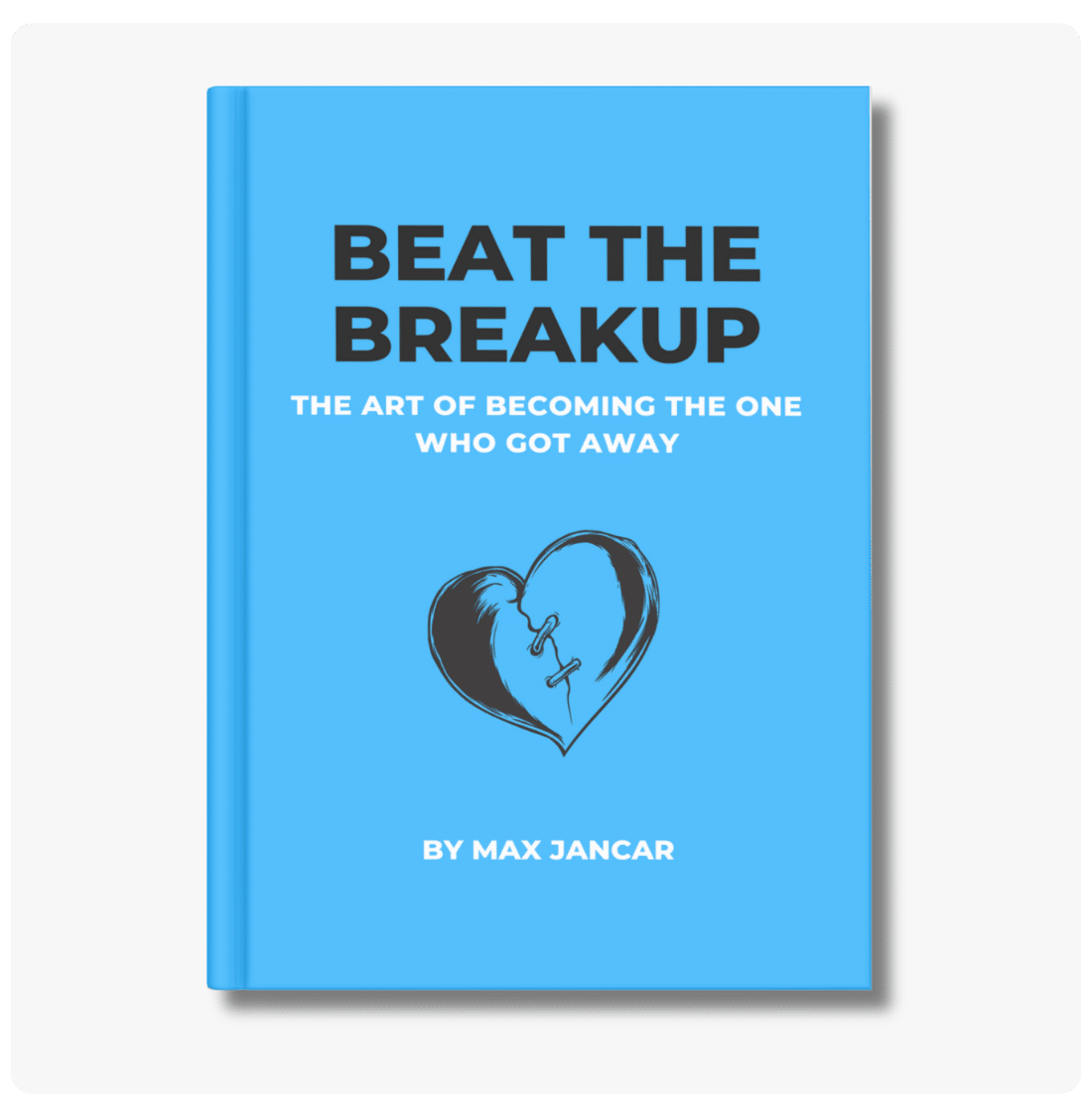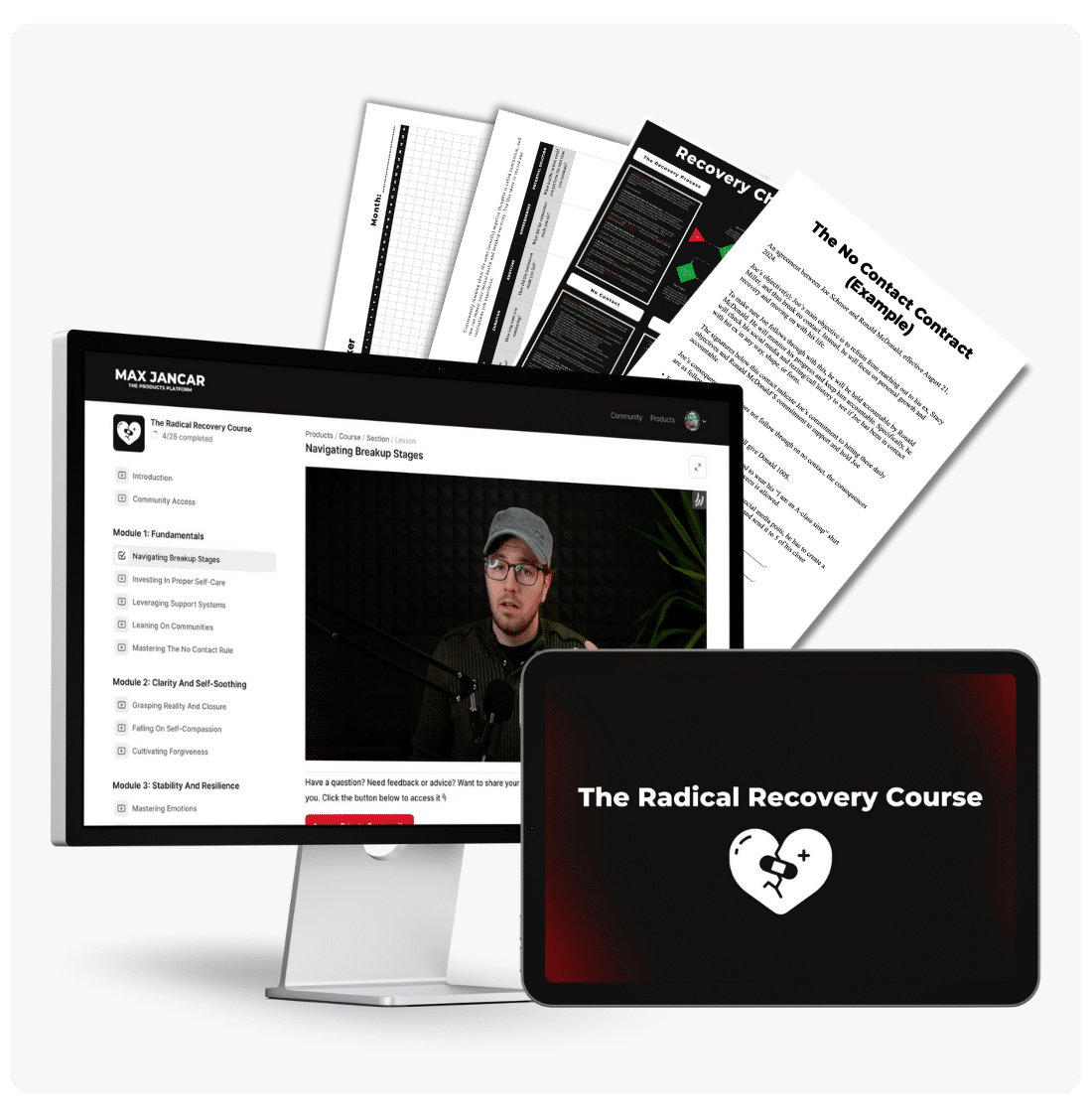Click play to listen to this article.
A lot of people have a romantic view of relationships, especially those from younger generations or those with a burning desire to get back with their ex. They think that relationships should not only last a lifetime but that they should also be easy, fun, and enjoyable all the fucking time.
Bullshit…
Truth is, those are not characteristics of real relationships. Relationships are not always fun, easy, and enjoyable. They’re often difficult and confusing. And they contain a few quirks that most people mistake as red flags, while in reality, they are natural and healthy occurrences.
Below I’ll go over six most common healthy relationship quirks most people think are toxic so that the next time you notice them in your relationship, you won’t freak out and think it’s over (again). Rather, you’ll think of them as challenges to overcome — challenges that, when overcome, will deepen the bond between you and your partner.
1. Relationships Are Never 50/50
Things change no matter how aware and sure two people are of their roles and responsibilities in their relationship. Their entire relational dynamic can turn upside down in a blink of an eye. One day, it may be you who cleans the car, scrubs the toilet, and vacuums the house. The other day, it could be your partner who gets the short end of the stick.
These shifts are to be expected. No relationship is ever 50/50 — meaning that both partners put equal amounts of effort into it. So don’t keep score of who does what, who doesn’t.
Keeping score with your partner can quickly ensue into trivial competitions: one holds back because they feel they are not treated right; the other overcompensates and tries to mitigate or control the situation.
When you keep score, you’re always stuck in a perpetual cycle-jerk of pushing forward and holding back. And all this dynamic does is that it chips away at mutual trust and respect.
Once trust and respect diminish, affection goes down the drain, conflicts, and resentment rise, and eventually, all that’s left of your relationship is a disintegrating pile of shit. And no, love can’t help mend things. Remember: Love is never enough.
So instead of keeping score with your partner, focus on being a team and helping each other — even if you have to put more effort into the relationship some days. The whole point of a relationship is to unconditionally give to each other and help each other grow and become more. Take note of that.
2. Relationships Are Chaotic
I always chuckle when my readers email me their entire love-life stories and then ask me, “So what are my chances of saving my relationship.” Almost every time, I respond with, “I have no fucking clue.” Figuring out how a relationship will pan out or whether you can save and/or rebuild yours is impossible to predict accurately.
Generally speaking, relationships are dotted with confusion and chaos. Regardless of how great you think yours it is, there will always be problems. There will be pointless arguments about leaving the toilet seat up. There will be clashing insecurities about one person wanting more space, the other less. The will be miscommunication — you know, the times when you think you know where your partner is coming from, only to realize 30 seconds later that you didn’t get half of what they were saying.
A good place to start mitigating these challenges is by accepting that they will eventually come your way. In fact, find a way to enjoy the chaos. Oh yeah, and having a compatible partner helps, too.
By withstanding the uncomfortable and unsettling, you’ll generate meaning and fulfillment and potentially even sculpt a relationship worthwhile keeping intact — one that may stand the test of time.
This cheat sheet lays out 40+ solutions to overcoming a breakup so you can create a new opportunity for love — be that with your ex or someone completely different.
Get The Free Cheat Sheet3. Relationships Change Overtime
People change (Shocker). They find and prioritize new values and leave the old behind. They get fresh perspectives on various new subjects and change some about the old. They get new interests, all while letting a few older ones wither away into nothingness.
This change in people is what changes their relationship. To put it differently, relationships evolve because the people in them change.
Sometimes these changes are for the better and only strengthen the relationship and embolden the love between two people. Sometimes the changes are for the worse and endanger a relationship, maybe even bring it to its knees. Sometimes people work things out. Sometimes they break up — again.
The chips fall both ways.
I’ve heard stories about people breaking up for the dumbest shit, like one partner getting a new job in a town about an hour or two away. And I’ve heard stories about couples who kept their relationship intact and thriving in spite of everything — different religions and worldviews, contrasting philosophies around raising kids, long-distance, mental illnesses, etc.
Accept the fact that your relationship, while it may be all honeycombs and silly frogs now, may not stay the same way after 3,5 or 10 years. Maybe you’ll find yourself growing in the same direction as your partner. Maybe you won’t.
We could even argue that love changes. The joy and benefits of love in the fifth week of relationships are far different than those after the fifth year or decade.
Relationships change, for better or worse. And both options are okay.
4. Relationships Are Festered With Conflict
There’s a popular misconception about arguing in a relationship floating around the internet; many people believe it’s a sign that there’s something wrong with it — a red flag of sorts, an omen of death. In reality, arguing, disagreeing, and even having consistent conflicts in your relationship is normal and expected.
There are two types of relationship conflicts: neverending and one-time. And each one needs to be approached and handled somewhat differently.
The way you handle neverending or repeating conflict is by not letting it grow to the point where it blinds you from the fact that your partner is your teammate. Approach the conflict not with resentment but with awareness, humor, and compassion. Hell, make fun of the conflict. And don’t try to fix it. You can’t “fix” neverending conflict. You only manage them better.
Example: when I sense myself taking my girlfriend’s crappy diet too seriously — to the point where conflict arises — I start making fun of the whole situation, including myself. This disarms tension, deepens connection, encourages both of us to foster greater mutual acceptance.
Now, the way you handle one-time or situational conflicts is by resolving them. However, know that not all one-time issues have to be resolved. Sometimes it’s better to let them slide.
Example: when you feel neglected and thus hurt whenever your partner keeps chatting on their phone on your dates, say,” Hey, I feel neglected when you’re on the phone while I’m talking. It would mean a lot to me if you put it down and pay attention. Besides, I want to know what else happened this weekend to you on that camping trip. Tell me about it.” In short: dare to be vulnerable. It’s sexy.
5. Relationships Involve attachment
A lot of people have pretty skewed perspectives on attachment. They assume that they can and should control their emotional needs and not get attached to anyone. In fact, a lot of those people equate attachment with neediness.
This is just plain wrong.
Attachment is not neediness. Neediness sprouts from low self-worth and deep-seated insecurities. But attachment is a natural and inescapable human reaction regardless of your emotional background.
Our brain will inevitably become wired to seek the support of our partner by ensuring the partner’s psychological and physical proximity. If they ever fail to reassure us, we are programmed to continue our attempts to achieve closeness until they do.
And attachment theory proves my point. To paraphrase Amir Levine, the author of Attached, the definitive book on attachment theory:
People are only as needy as their unmet needs. When their emotional needs are met, and the earlier the better, they usually turn their attention outward. This is sometimes referred to in attachment literature as the “dependency paradox”: The more effectively dependent people are on one another, the more independent and daring they become.
Therefore, being attached to your partner is no reason to feel alarmed. You’re not needy for wanting closeness with them. You’re simply human.
6. Relationships Bring Perpetual Mood Swings
Some days, you’ll be frustrated and impatient with your partner. Other days you’ll radiate love, patience, and appreciation for them.
Some days you’re going to wish to try out new relationships. Other days you’ll be confident that your partner is the person you’ll stay committed to forever.
Some days your head will be strewn with insecurities that lead to needy tendencies, which then sabotage your relationship. Other days, you’ll feel as if you have little to no insecurities. You just won’t give a fuck.
Some days you’ll want to fuck your partner’s intestines out. Other days, you’ll have no interest in seeing them naked.
These fluctuations in moods and attraction are bound to happen, especially after the infamous Honeymoon period. In fact, after that period, emotional fluctuations become a recurring prospect. And that’s okay.
Think of yourself as a surfer, and think of these fluctuations as the waves — some are small and innocent; others are large and menacing. Your objective is to ride them well.
Ride them well.
This cheat sheet lays out 40+ solutions to overcoming a breakup so you can create a new opportunity for love — be that with your ex or someone completely different.
Get The Free Cheat Sheet



